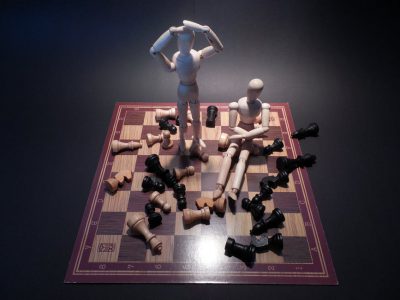
I received a call from Ohel to participate in a panel focusing on anxiety. I wasn’t sure what my role on the panel would be. The other two members were well known mental health practitioners. I have no degree in psychology and as I constantly remind my congregants, I am not a licensed therapist. “Why me?” This was my immediate response to the call. “We want a rabbi’s perspective.”
Hesitantly, I accepted.
I decided to do some research and present my findings. I discovered that anxiety disorders are the most common mental illness in the U.S., affecting 42 million adults 18 and older, or 18.1% of the population every year. Anxiety disorders are highly treatable, yet only 36.9% of those suffering receive treatment.
Despite its profound prevalence even in the Jewish community, few feel free to talk about it. As I drove to Brooklyn, I had my speech in hand: an unemotional talk about the preponderance of the condition and a plea to those who are suffering to get help. I had all the pertinent data and as a disconnected outsider, I would present my cerebral communication in a detached emotionless manner.
David Mandel, the CEO introduced me and I hesitantly stood up. I am not usually nervous at the podium, however, this time I was sweating. I looked at the standing room only crowd. I stared at their faces.
On many, I could see anxiety written across their foreheads. They were pining to hear from me sincere and meaningful words of solace which would help heal them. Their unspoken yearning for validation penetrated deep into my heart. They did not want a monotonic canned speech on anxiety containing numbers and statistics while simultaneously sounding pompous and condescending. They were aching for relief and for understanding and for the realization that they are not alone. They needed someone to tell them, “It’s okay to feel this way. You are not alone.” Ultimately, I knew that from me, they needed and wanted empathy. From me, they wanted to know that someone understands them besides their therapist.
As I looked at their anticipating faces, I made a clear decision right then and there. I closed my folder and opened my heart. I would not hide behind the prophylactic pile of prepared words. No, I would allow my mask to fall and my soul to be revealed. I whispered a tefillah as the words began to emanate from within my heart.
“Anxiety should not be the hidden affliction which so many of us suffer from, yet, few get treatment for. The lack of proper treatment impacts on the entire Jewish family unit, especially if the one suffering is the father or mother. Our first step in helping individuals who are suffering in silence is to eradicate the stigma assigned to those who come forward to share the pain of anxiety. We must show them they are not alone and there is no shame in feeling anxious. I know a Rav of a large shul who has completed Shas more than once, authored three books, runs support groups for survivors, speaks regularly in different cities and is an adjunct professor of Judaic Studies at Lander’s College for Women. Many people consider him successful and he continues to remain productive in spite of – or maybe “because” of his struggles with anxiety.
“You probably think I created a fictional character to help demystify the stigma of anxiety. Not so.
I can assure you that every word I have said about this Rav is 100% true. Believe me, every word is Emes.
I know it’s true all too well.”
The room went silent. There was an eerie stillness in the air. I looked up at the audience and they looked at me, no words were needed. We understood each other perfectly. Our pained souls bonded together as the loneliness dissipated from our hearts and Hashem’s healing hand could be felt throughout the room.
____________________
This article also appeared in Mishpacha Magazine under the title, I Know of What I Speak.



















